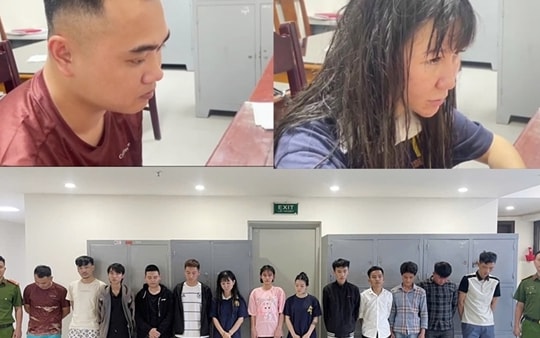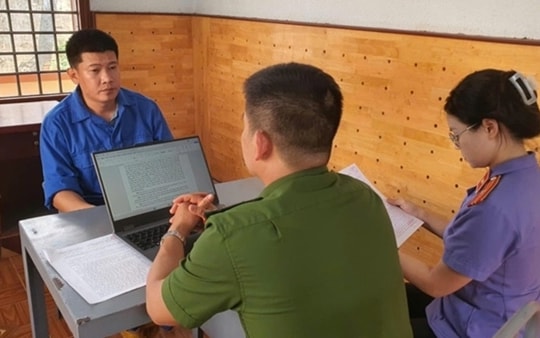The Ministry of Public Security identifies a number of new fraud methods and tricks of high-tech criminals in cyberspace.
To prevent and handle high-tech fraud and property appropriation activities in cyberspace, in addition to the fight, the police have pointed out a number of methods and tricks of fraud in cyberspace. Thereby, helping people easily identify and avoid "falling into the trap" of fraudsters.
Recently, in the progress report on the implementation of the Prime Minister's Official Dispatch No. 139/CD-TTg on strengthening the prevention and handling of high-tech fraud and appropriation of assets in cyberspace, the Ministry of Public Security identified a number of main methods and tricks of fraud in cyberspace as follows:

- Impersonating law enforcement agencies to threaten and request victims to transfer money; impersonating the Cyber Security Center, the Department of Cyber Security and High-Tech Crime Prevention, the Ministry of Finance... promising to get back the money that was scammed; impersonating police officers, state officials to guide the installation of public service applications(VNeID,public services, taxes...) to control the device, seize money in the victim's bank account(accounting for 21.47%)%).

- Through online job recruitment activities, recruiting online sales collaborators, doing tasks to earn money(accounting for 21.01%).
- Through investment activities in economic corporations, on stock exchanges, foreign exchange exchanges, e-commerce exchanges, cryptocurrencies...(accounting for 20.53%))
-Through trading activities, buying and selling goods online, ordering online(accounting for 8.03%)).
- By taking control (hacking) or impersonating social network accounts and then borrowing money, asking for money transfers, buying phone cards (accounting for 8.67%%).
- Tricks of love traps, giving valuable gifts to defraud and appropriate property(accounting for a proportion)5.8%).
There are also a number of other methods and tricks such as: Tricks of cutting and editing sensitive images and videos for the purpose of fraud and blackmail; online loan fraud, opening high-limit credit cards; impersonating charitable organizations; cheap airline tickets and tours... still happening.
In addition, the Ministry of Public Security has pointed out a number of new methods and tricks including:
-Fraudulent "jelly betting", "stone betting":The subjects used social networks Facebook, TikTok... to livestream fraudulent acts in the form of cutting stones to find jade, but in fact, it was staged to defraud and appropriate the victims' deposits and contributions to examine stones.
- LFraudster impersonating police officers, creating an office similar to a police agency (many people in uniform working, police officers are taking statements from subjects...), making video calls to commit fraud and appropriation of property.
-Sending summons with forged seal and signature of People's Court Judge to people's homes,then called to threaten and ask the victim to "run the case" (happened in Hanoi).
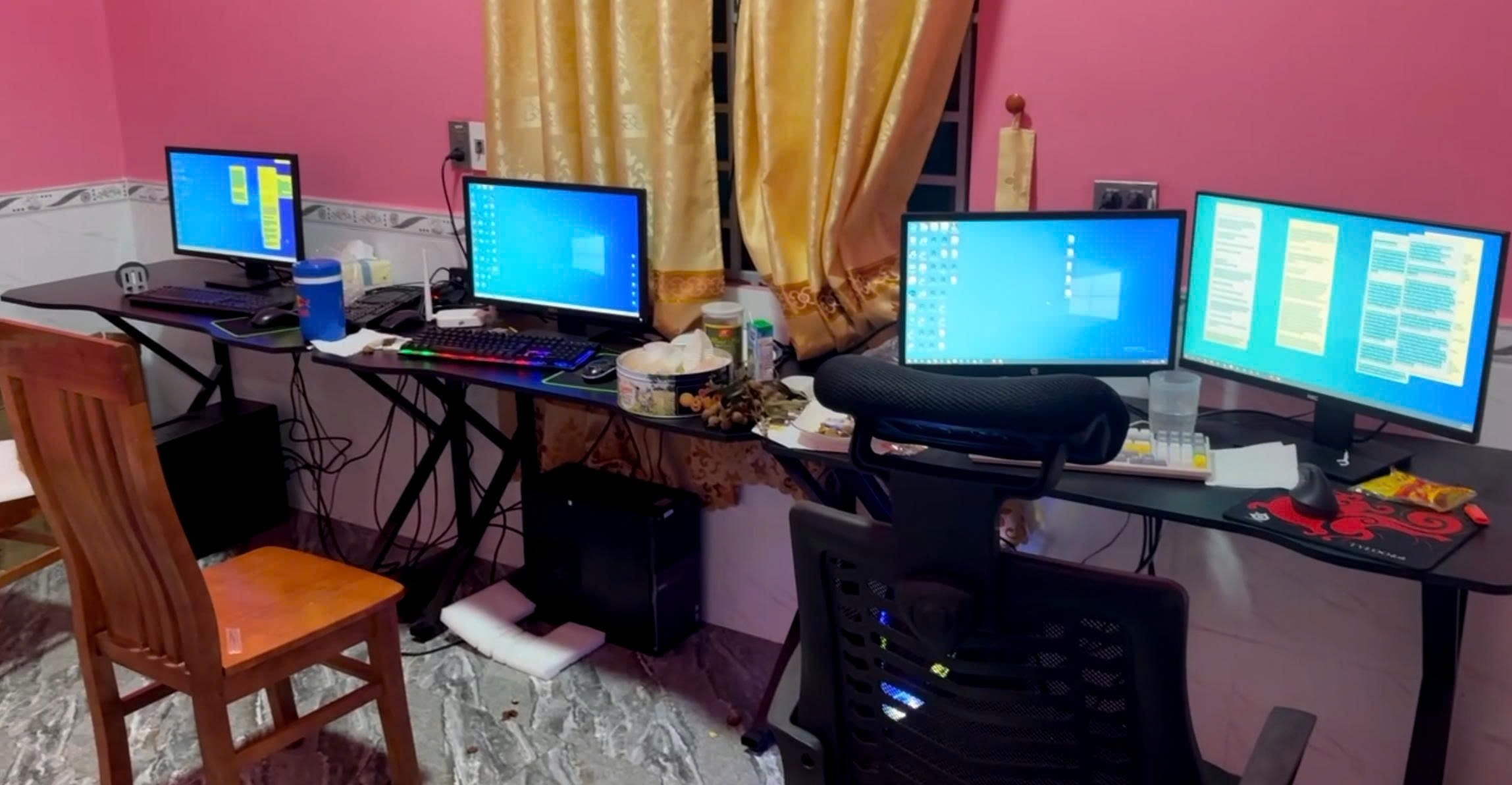
- Methods and tricks to take advantage of the Party's policies and guidelines and state management work, such as:
+ After implementing the merger of commune-level administrative units, the scammers immediately had a scenario of calling people to fraudulently change their citizen identification cards and update their information data according to the new model.
+ When the Politburo had a policy of exempting tuition fees for students, scammers created a scenario to trick people into registering for tuition exemption for their children, refunding tuition fees to get information and creating many other reasons for parents to transfer money.
+ After Pi virtual currency was listed on the exchange, scammers immediately had scenarios, built fake applications and exchanges to defraud victims of Pi virtual currency...
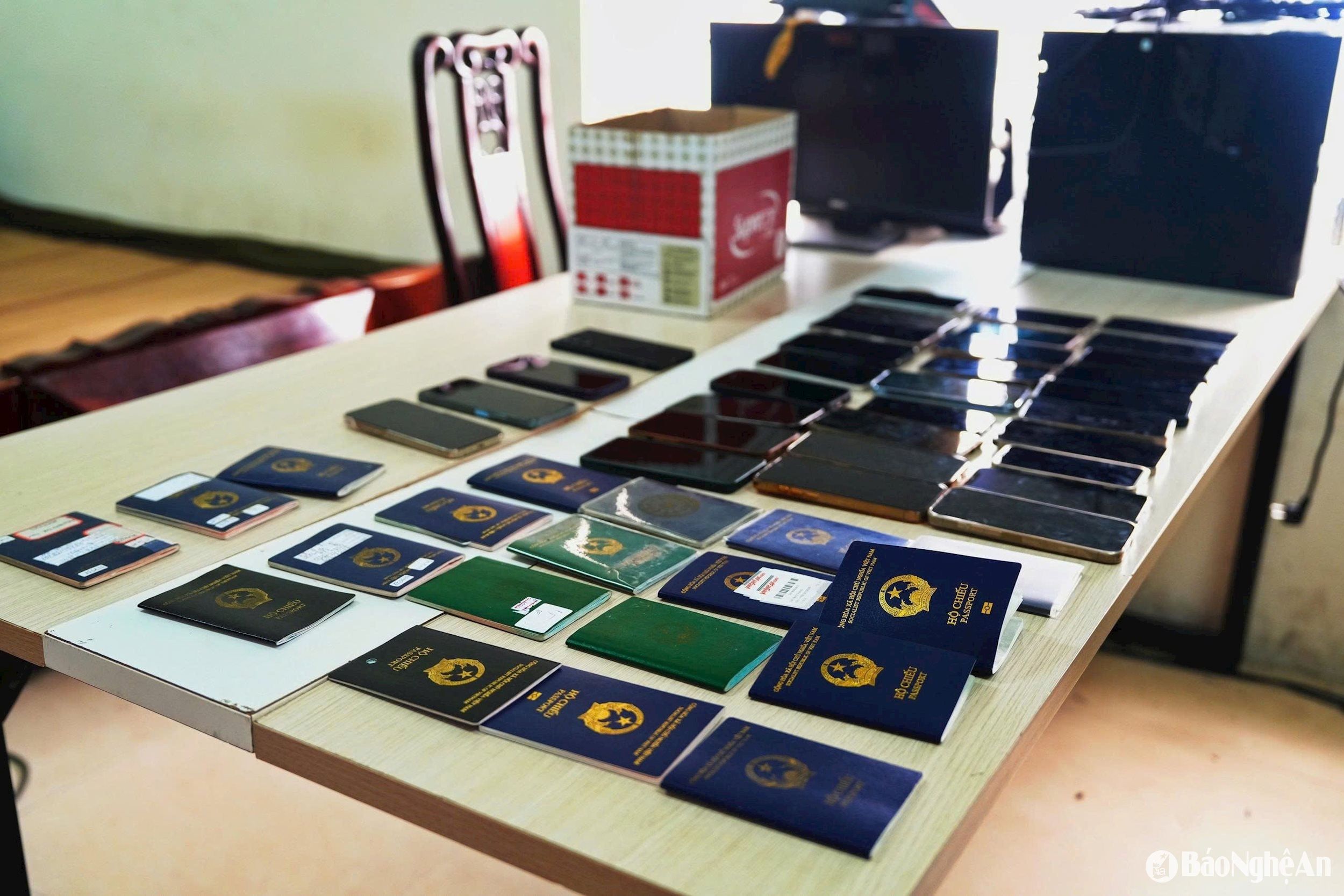
Most of the cyber frauds are carried out by subjects in foreign countries (Laos, Cambodia, Philippines, Myanmar...), concentrated in economic zones owned by Chinese subjects such as: Golden Triangle Special Zone (Bo Keo, Laos); Sihanoukville Special Zone, Tam Thai Tu Special Zone (Cambodia); Robinson Zone in Pasay, Manila (Philippines)...
Typically, on June 3, 2025, the Criminal Police Department of Nghe An Police presided over and coordinated with the Ministry of Public Security's Professional Departments, Provincial Police Departments, Police of provinces, cities, border gates across the country and related units to successfully break up a case, eradicate a criminal gang operating in Myanmar and the Philippines using high technology to commit transnational online fraud, arresting nearly 100 subjects (from many provinces and cities across the country, many of whom were arrested after entering Vietnam). It is estimated that he has defrauded and appropriated more than 2,000 billion VND from Vietnamese citizens.
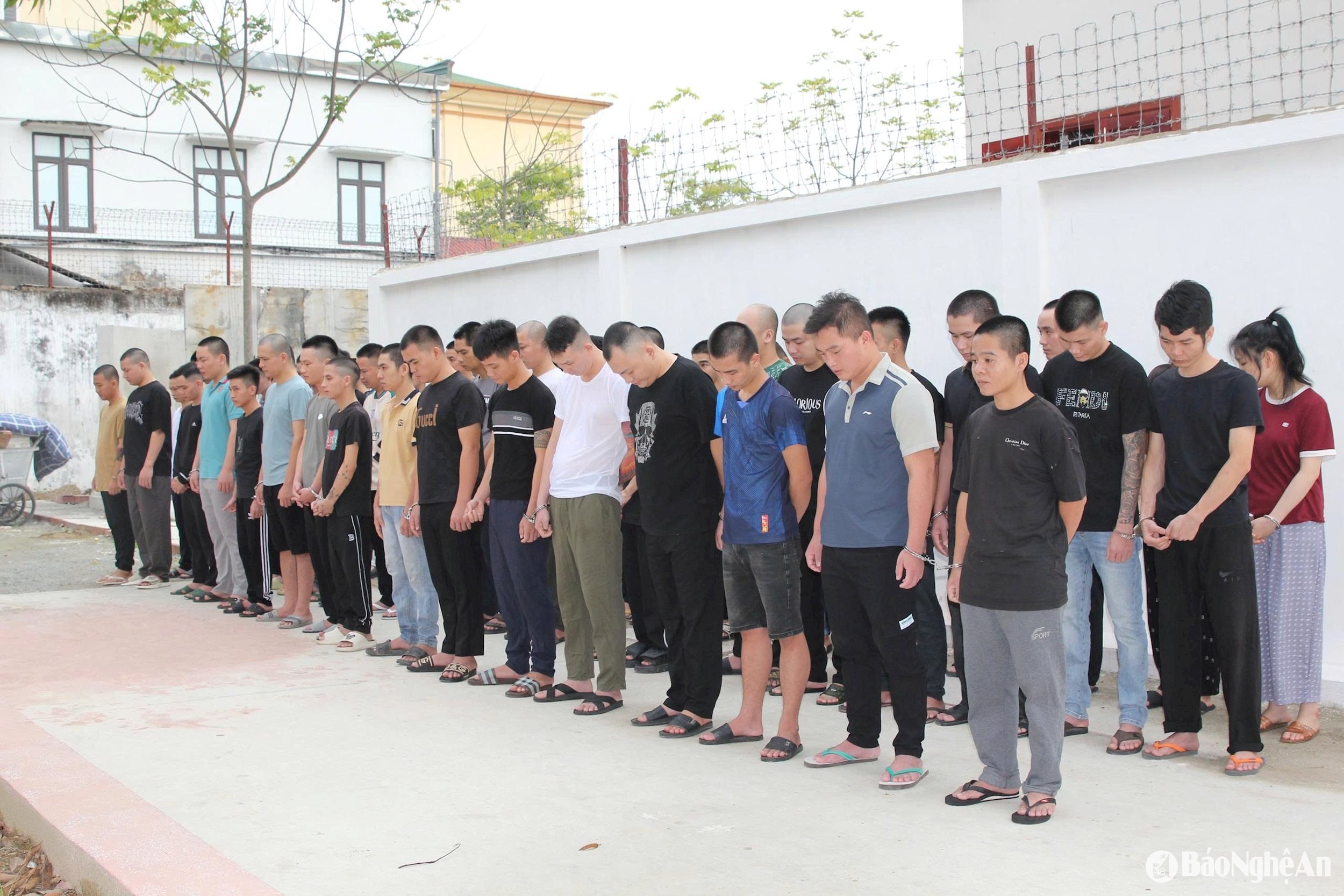
According to the Ministry of Public Security, in order to prevent and combat fraud and property appropriation, recently Although propaganda work has been done well, the awareness of access of a part of the population is still low, especially the youth (who only watch entertainment programs). Applying AI to filter content according to user trends of website and social network platforms makes it even more difficult for those who rarely watch propaganda to access propaganda content...
Therefore, ministries, branches, People's Committees of provinces and cities need to strengthen propaganda work, mobilize the combined strength of the entire political system to spread propaganda about fraudulent activities to all classes of people, creating habits for people to access and research.
Recently, implementing the direction of the Permanent Deputy Prime Minister Nguyen Hoa Binh in Official Dispatch No. 5685/VPCP-NC dated June 23, 2025 of the Government Office on the progress of implementing Official Dispatch No. 139/CD-TTg on preventing and handling fraudulent activities of appropriating assets using high technology in cyberspace.
Nghe An Provincial People's Committee issued Document No. 6000 UBND/NC dated June 25, 2025 requesting provincial departments, branches, and commune-level People's Committees to strengthen the effective implementation of Official Dispatch No. 139/CD-TTg dated December 23, 2024 of the Prime Minister on preventing and handling fraudulent activities of appropriating assets using high technology in cyberspace; Official Dispatch No. 480/UBND-NC dated January 20, 2025 of the Provincial People's Committee on strengthening the prevention and handling of fraudulent activities of appropriating assets using high technology in cyberspace; Official Dispatch No. 29/CD-TTg dated April 3, 2025 of the Prime Minister on promoting the prevention and handling of activities using high technology in cyberspace to fraudulently appropriate assets; Official dispatch No. 3609/UBND-NC dated April 28, 2025 of the Provincial People's Committee on promoting the prevention and handling of activities using high technology in cyberspace to defraud and appropriate property.

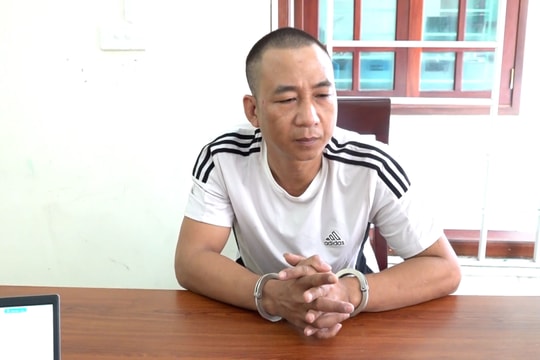
.jpg)
